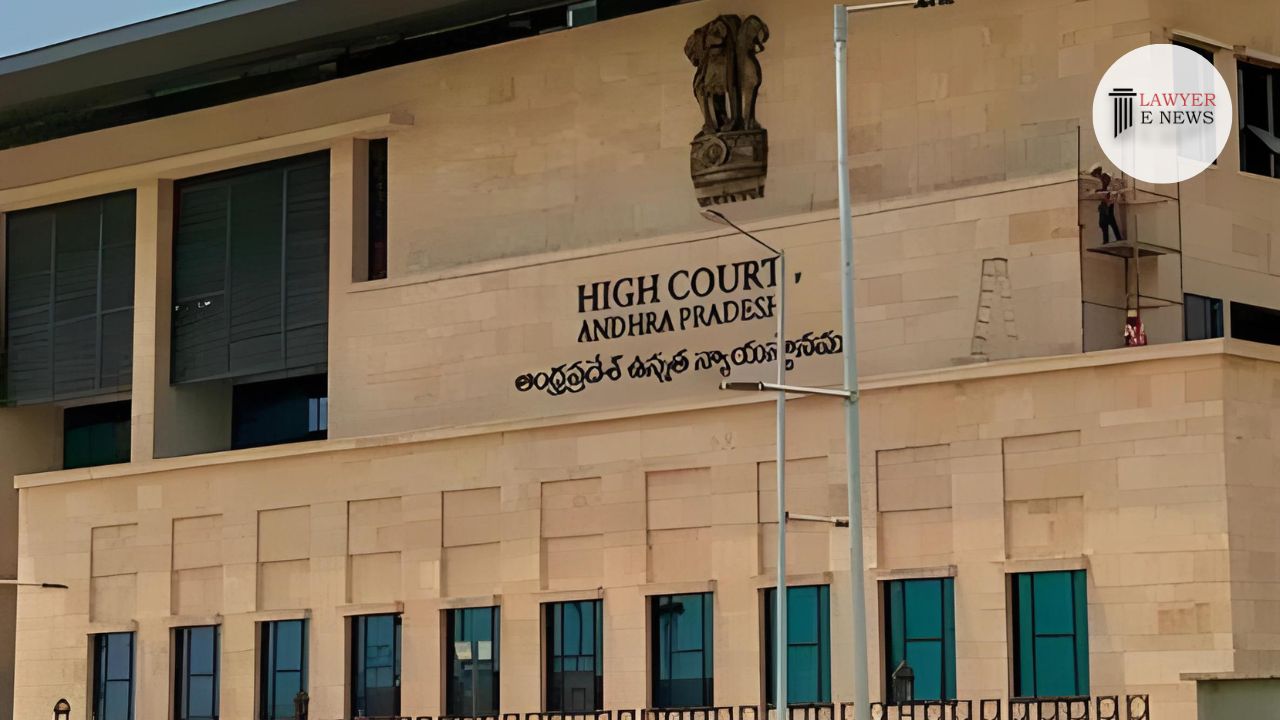-
by Admin
15 February 2026 2:36 AM



“The respondents shall not deduct any amount towards cess, unless the corresponding amount is included in the estimates.” — Justice Gannamaneni Ramakrishna Prasad, writing for the Court In a significant ruling on September 9, 2024, the Andhra Pradesh High Court, presided over by Justice Gannamaneni Ramakrishna Prasad, decided in favor of SSR Constructions, a petitioner challenging the arbitrary deduction of 1% Labour Cess from infrastructure project payments. The case, M/S SSR Constructions v. Government of Andhra Pradesh, centered on whether the government could deduct Labour Cess from contractor bills for projects awarded before the 2007 amendment to the Building and Other Construction Workers Welfare Cess Act, 1996.
The petitioners argued that the contracts they entered into with the Andhra Pradesh government did not include provisions for the 1% Labour Cess, which was introduced by a 2007 amendment to the Labour Cess rules. As a result, they claimed the deductions were both illegal and arbitrary, constituting a violation of Articles 14 (Right to Equality) and 19(1)(g) (Right to Practice Any Profession) of the Indian Constitution.
The key legal issue before the court was whether the Government of Andhra Pradesh could deduct Labour Cess without having explicitly included it in the original contract estimates for infrastructure projects that predated the 2007 amendment. The petitioners claimed that the deductions violated both their constitutional rights and basic principles of contract law, as the cess was not accounted for during contract negotiations or in the estimates upon which bids were based.
The court, relying on a previous decision in Ch.V.V. Subba Rao v. Government of Andhra Pradesh, reiterated the principle that cess deductions can only be made if the cess is explicitly provided for in the contract. Justice Prasad noted that “the occasion for an agency to deduct the cess under the Cess Act would arise only when the corresponding amount is included in the estimates” [Para 11].
Justice Prasad highlighted the need for contractual clarity in government agreements, noting that the government cannot retroactively alter contract terms by unilaterally imposing additional costs on contractors after work has been awarded and initiated. The judgment emphasized that the recovery of the 1% Labour Cess without corresponding provisions in the contract estimates was not justifiable under the 1996 Act or the amended rules.
Violation of Articles 14 and 19(1)(g): The court found that the government's deductions of the Labour Cess from contractor bills, without these deductions being specified in the original contract estimates, amounted to arbitrary action. This violated the petitioners' right to equality and their right to practice their profession freely [Paras 5-12].
Precedent Setting Judgment: Citing the decision in Ch.V.V. Subba Rao, the court ruled that government agencies cannot deduct amounts towards the Labour Cess unless they are explicitly included in the project estimates. The same principle was applied to the present case, resulting in the court allowing the writ petition [Para 12].
Order for Refund: The court directed the government to cease further deductions of the Labour Cess from the petitioners' bills and to refund the amounts already deducted. The ruling provided immediate relief to SSR Constructions and other contractors facing similar deductions for works awarded prior to the 2007 amendment [Para 13].
This judgment is expected to set a strong precedent for contractors engaged in infrastructure projects with government agencies, particularly concerning the imposition of statutory levies that are not initially accounted for in contractual agreements. Legal experts believe the ruling will safeguard contractors from arbitrary financial burdens that may arise from retrospective application of laws or regulations.
Moreover, the judgment reinforces the importance of adherence to contract terms and the principles of fairness in public procurement processes. Government agencies will likely need to reassess their contract templates and bidding processes to ensure compliance with the court’s ruling, particularly for ongoing or future projects involving labour-intensive works.
Date of Decision: September 9, 2024
M/S SSR Constructions v. Government of Andhra Pradesh
